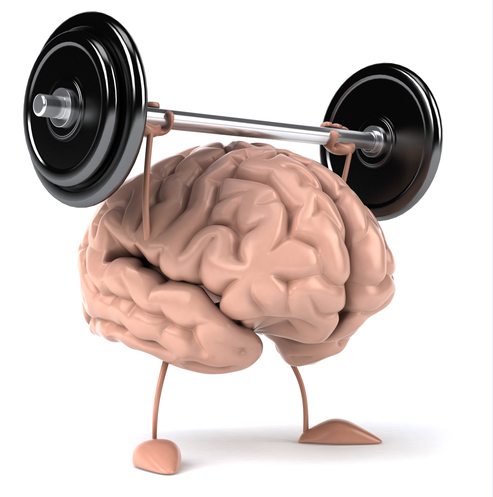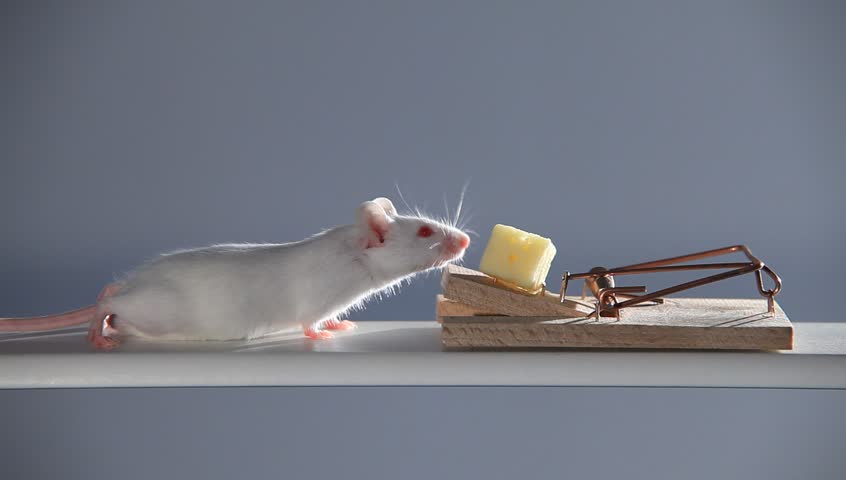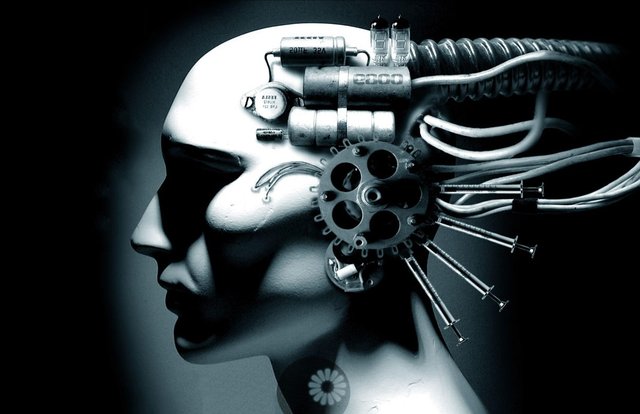Intelligence, what is it?

First we must start by saying that intelligence is a direct product of our brains (and not some undetectable metaphysical entity within each one of us), so our responses must be linked in some way to the functioning of our brain.
Likewise, to understand the concept of intelligence we must understand that we are, at the end of the day, simply another link in evolutionary systems. We are just another mammal in a long chain of billions of years.

But what is it and how does the brain work? For the simplest way to respond is by saying that the brain is a machine that recognizes patterns, that recognizes things and reacts to them.
The simplest biological beings, like tadpoles for example, live a "reactionary" life, where their senses get stimuli from the world around them, and these simply react thanks to genetically pre-wired behaviors. So if, for example, a tadpole detects the presence of a predator, it simply flees, and that's it.
A tadpole never, no matter how hard he tries, will be able to write a novel, or understand a painting by Salvador Dalí. Simply because his brain is too simple and lacks the necessary circuits that we possess.
However, something interesting happens with organisms with more complex brains like ours. At some point in our evolutionary process, a genetic change propitiated the concept of a memory.
This memory served so that organisms now did not depend only on simple reflexes to survive, but began to memorize patterns, or in other words, to learn.
That meant that now some organisms a little more complex, say, a mouse, could now learn from a specific event, store that in their memory, and then have the ability to call that memory back when it is in a situation similar to the previous one.

So for example, the mouse maybe found a trap, he could save himself from it, but the trauma of almost losing his life solidified a memory quite strong in his memory about the encounter with the trap. Now, the next time the mouse finds a trap, the very image of the trap will serve as a trigger for the previous memory, making the mouse remember the fact and now try to evade the trap.
So we went from a purely reactionary system, to one that can now react based on past experiences memorized.
But, although the concept and development of a brain memory system was very useful for survival, it still lacked a key component.
Predictability.

It is one thing to remember something and simply try not to do the same thing, but another much more useful is to try to predict what would happen if one does such a thing (and note that for one to predict, it is necessary to have an effective memory, since this serves as a database of actions that one can take at the time of making predictions).

An example with the same mouse would be not only that it tries to evade the trap, but also remembering that the trap is activated by quickly lowering an iron bar that catches the mouse, so if the mouse had a good predictive capacity he might think something like the following:
"Very well, if I press that lever the bar will lower and catch me, but if I put something on the lever, like a pebble, the lever will lower and hit the stone, deactivating the trap, and allowing me to eat the cheese that these “know-all” humans left me as bait".
And that is precisely what beings with more developed brains like octopi, ravens, dolphins, primates, and naturally, humans do ...
It is that ability of one to predict in the future what gives it the greatest capacity for survival, and expression (in the case of humans) to any being that we consider intelligent.
We can say that the more the ability of the being to "see into the future", the higher his level of intelligence.
What good is predictability when it comes to writing a successful novel?
Because it helps you to predict the tastes of people, current fashions, the phrases they will like, the plots that hook, etc. And the same can be said of a painter, or a sculptor, or a photographer, a video game designer.
And in the business world we see this on a daily basis: Visionaries like Henry Ford, Steve Jobs, or even Bill Gates or Mark Zuckerberg, are people who could / can see a little beyond what people see to their noses in day to day. Satoshi Nakamoto is a great example for us too.

Today it is trivial to see the concept of a social network like Facebook, but it took Zuckerberg's vision to imagine and predict what the future would be like in a world with these types of tools. Today, we are seeing a paradigm shift, with concepts like the one here on Steemit where users get rewarded for their content and interaction. This idea was not easy to figure out before, but now that we are seeing it with our own eyes and experienced it on our own flesh, we can certainly see this as something spectacular and achievable.
We can also talk about Henry Ford's vision of perfecting the concept of an assembly plant for his cars, or the vision of Steve Jobs when imagining a world full of iPhones and iPads with touch screens and easy use, and a similar case we can make the founders of Google, Amazon, Netflix and many other legendary companies.
Who are the best software programmers? Not necessarily those who know 10 different programming languages, but those who can create programs they predict will be useful for millions of people, or those who predict that they can create libraries of reusable objects that will be useful to thousands of other programmers, or those who can predict that such boss or such client will like such created solution.
The power of prediction is, in essence, the clearest measure we can obtain objectively on the concept we call "intelligence".
However, something curious about our brain is that it is constantly making predictions, even unconsciously.

For example, when you raise a hand to comb your hair, the brain is literally predicting that if you move your muscles in such a way, they will eventually bring your hand with your comb to your head, and then predict (before your comb touches your hair) the exact place where you will begin to comb your hair, and then predict the sensation you will feel when passing your comb over your hair, etc.
Similarly, when you walk, your brain is predicting where exactly your foot will fall to support your weight, and also predicts that if your body bends in a certain way by lifting your foot off the floor you will maintain balance, etc.
And similarly, when you read the letters of this post, your brain is predicting that on the right side of these letters you will find more letters, so command your eyes to look to the right, to find more letters, and predict that end of a line you will find more letters in a new line, and even predict that this post will eventually end. He even predicts that there will be comments and that you must set a mental alarm to go back and read them.
What do you consider intelligence and why?
Do you think we humans are the greatest example of intelligence? Why?
Another interesting question could be, what does it mean to be alive? And how can a software be considered “alive”? I will leave that for another post folks.
Image Sources
1, 2, 3, 4, 5, 6

The legend of the only female “Pope” in history, “Pope” Joan.
My resolution for 2018: I want to be in the top 10% of Steemit
Sightings from the future: the society that awaits us, with AIs and robots.
It is good to see intelligent people writing on intelligence...
Let me try to answer your questions as they are interesting for me also :
1- For definition of intelligence, I stick to Einstein's definition:
Imagination is creating something unique without having the necessary inputs before.
2- Apart from humans no creature can do this yet. AI is on the way.
As the only way to fly is not to flap wings, the only intelligence is not human intelligence as we know it. This subject is huge for a comment.
3- Please post on life...i am following you and waitng for your writing.
The only issue I have is how can we confirm if something has imagination or not?
Thanks for your kind words!
Hey man, awesome custom logo and breaks, how'd you whip those up?
In regards to the article: One thing I've wondered about is whether or not we aren't just reacting. Sure we have memories, but isn't a memory just a thought about the past? Sometimes memories will pop up without warning, things we aren't trying to think of we end up thinking about. Memories we have differ from other people's memories of the same event. Maybe we are just reacting to thoughts and experiences as best we know and it's far a far more complex set of variables than creatures with different brains.
Obviously we are more intelligent in categories we consider intelligence to be applied to like the arts and sciences, but each creature is the best at what it does, its intelligence is built in as survival, the body itself is intelligence. It's existence is its art. Whales and dolphins have big brains with larger centers for emotion, they may be as/more intelligent than us in certain ways that we don't understand yet.
Maybe I'm making no sense, just trying to challenge the assumption that we are superior in intelligence. I definitely get what you're saying and enjoyed the article. I'm following, my VP is down now but I'll check your stuff more in the future!
I had a similar thought. Mabye we are just reacting... and I realized we are. But the free will lies in the ability to decide, what are we going to react to. We can choose not to react. You are what you pay attention to.
Sure, the whales and dolphins do have huge brains, but do they have high ability to abstract?
(You are making a lot of sense to me. The comments under this article are almost as interesting as the article itself :D )
I'm not sure how dolphins and whales are experiencing, they definitely have different capabilities with the tools at their disposal. I'd be very interested to learn. I definitely think there is more going on with humanity, there's some intangible intelligence that does allow us to not react. How can someone not flinch when burning to death:
One thing I read or listened to the other day was about how we as humans are separated from our true nature sometime around childhood and enter the egoic state. So our consciousness separates from the material. Then we can realize our true nature and re-embody our incarnation and have true understanding and intelligence. This was something from Rupert Spira and is getting a bit on the spiritual side, but spoke to me nonetheless so I thought I'd share.
Maybe they are just use to it they don’t react anymore.
I think childhood is a very special fase, we are more pure at that age. I even had a promonition when I was in 6th grade. I know it’s difficult to believe, but I saw the future in one of my dreams (it was just a goal in the champions league finale, but it was the future nonetheless).
So I agree with you in that there are more things going on we are not aware of.
But I also believe we will be discovering this things as science and technology evolve.
I think this is not an assumption. I believe the fact we have superior creations (like computers) is a proof of our superior intelligence in comparison with animals.
The ability to have complex creations determine the intelligence don’t you think?
Ps: about the custom logo and breaks you can chat me up on discord if you need help bud
I'm not sure that it does, where is the intelligence in creating nukes? Is the ability to create true intellignece, or just the potential for greater intelligence. Don't get me wrong, I think we are have a different degree of intelligence that our bodies and minds support, I do think we are more advanced in many ways to everything else on the planet, I'm just not sure what that is due to. We have an incredible ability to communicate and imagine and create, the human body is excellent for these things. I'm just not sure you can define intelligence as the ability to create. Food for thought.
and thanks, I may take you up on that!
Creating weapons of mass destruction might be necessary to stop crazy humans (totalitarians, religious fanatics) to make an attack. And the science behind nukes is mind blowing, so there is certainly intelligence behind that.
If intelligence is not the ability to create, then what is intelligence for you? Perhaps comprehending complex things (without necessarily creating them) is also a prove of intelligence.
Brother I'm gonna read this later! So Bloody proud of you man! Your growing on Steemit is just unreal! Cheers mate!
Hey bro what’s up! Thanks for those words! And that grow is also because of your huge help dude! 😇😆
Evolution at its finest! Great article by the way! Very curious to see how mankind plays out in the next hundred years with transhumanism and evolution!
Exactly! The future looks incredible.
Very interesting. And what interests me more is the fact that just two days ago, my friend asked me "how do you consider a person 'smart'?" I think you answered that question wonderfully. I shared this post to that friend right now. Thank you for your insights. :3
Great! I hope this post can satisfy your friend’s doubt!
Interesting article, but I have to disagree.
I think what you should really focus on is the ability to simulate (4life, lol) reality that you mentioned, patterns are just a part of it.
If our brain would be only "a machine that recognizes patterns, that recognizes things and reacts to them" then any deviation from the pattern would kill/harm us. It's the ability to simulate that helps living beings to survive and prosper.
Also, tadpole is actually using patterns when fleeing from predators, otherwise what is the difference between fleeing and walking you described. I believe you disproved yourself :D
I quite enjoyed the read, thanks :)
Interesting take! Your answer made me remember the simulation hypothesis. Have you read about it?
The one that we live in computer simulation? :D yea
Whilst I do, (broadly), agree with the points you raise, I do take a different view. My belief is that the ‘scientific’ qualitative and quantitative assessments of intelligence are sub-optimal.
This is because the ‘instinctive’ capability of an individual is what really makes the difference between being ‘bright’ or ‘sharp’ and verging on genius (in any field).
It is instinct that facilitates speed of analysis and decision making. The capacity to adapt to the unknown or the unexpected (be it the sharp wit of a comedian or the adaptability of a great boxer)...
In the same way, a very clever individual can be absolutely shockingly daft at certain things and specific areas of life. Therefore, the quotient of their intellect is more nuanced and nebulous than can be accounted for in the traditional science-based approach we are familiar with in the West.
Of course measuring intelligence is never easy, since there are several types of intelligence.
Exactly, I imagine Einstein’s or Tesla were horrible athletes.
There are creative people that can’t do math, and math people that aren’t creative at all. And both types are intelligent.
In future episodes I eagerly await your explanation of sentience vs sapience (what is the difference) in conjunction with the 'society of mind' internally and it's relationship to 'the monkeysphere' externally.
carry on.
Haha you want deep subjects am I right?
Let me think about that... I prefer to post complex post when I reach a larger following, but I am not sure if that’s a correct strategy?
I have been trying to keep my posts kind of light for the moment :D
In other news
the neuron is NOT a simple on/off switch.
in fact some scientists have said that each NEURON
is the functional equivalent to the internet.
imagine how MANY connections in our brain
THAT would make?
and THAT is just the wetware
imagine how complex the software is.
and people worry about making an AI
any time soon?
Our brain is certainly very complex. But by reading your last phrase I suppose you aren’t a little bit worried about some AIs taking control away from us?
nope.
lemme tell you a story.
about boats.
I haven't the LEAST idea how to build one from scratch.
BUT.
There is no doubt in my mind that I can take an old fiberglass hull made in the seventies and remodel it to suite my needs. I can make it better, as far as I'm concerned, than it was when it was new.
Same with minds.
we haven't the least clue about how to build one.
but I'm pretty sure we can hotrod them.
my strategy is to make a SERIES of posts.
have each one short and sweet and only cover ONE
very brief
subject.
because.
attention span..
and bots.
and millennials..
and like that.
Since your reputation is 72 I would say your strategy is working nicely hahahah
lemme tell you about that rep
each step is ten times harder to get than the one before it.
Yeah I also saw @stackin saying that, but I remember also reading it was only 1.3 times as hard? So I am not sure on that one
I COULD be wrong..but I don't think so.
In this case
why the odd number?
51 is ten times harder than 50 but 1/10 as hard as 52.
It's an orders of magnitude kinda thing.
powers of ten.
Thanks to @firedream, this post was resteemed and highlighted in today's edition of The Daily Sneak.
Thank you for your efforts to create quality content!
Thanks!
@originalworks
The @OriginalWorks bot has determined this post by @dedicatedguy to be original material and upvoted it!
To call @OriginalWorks, simply reply to any post with @originalworks or !originalworks in your message!